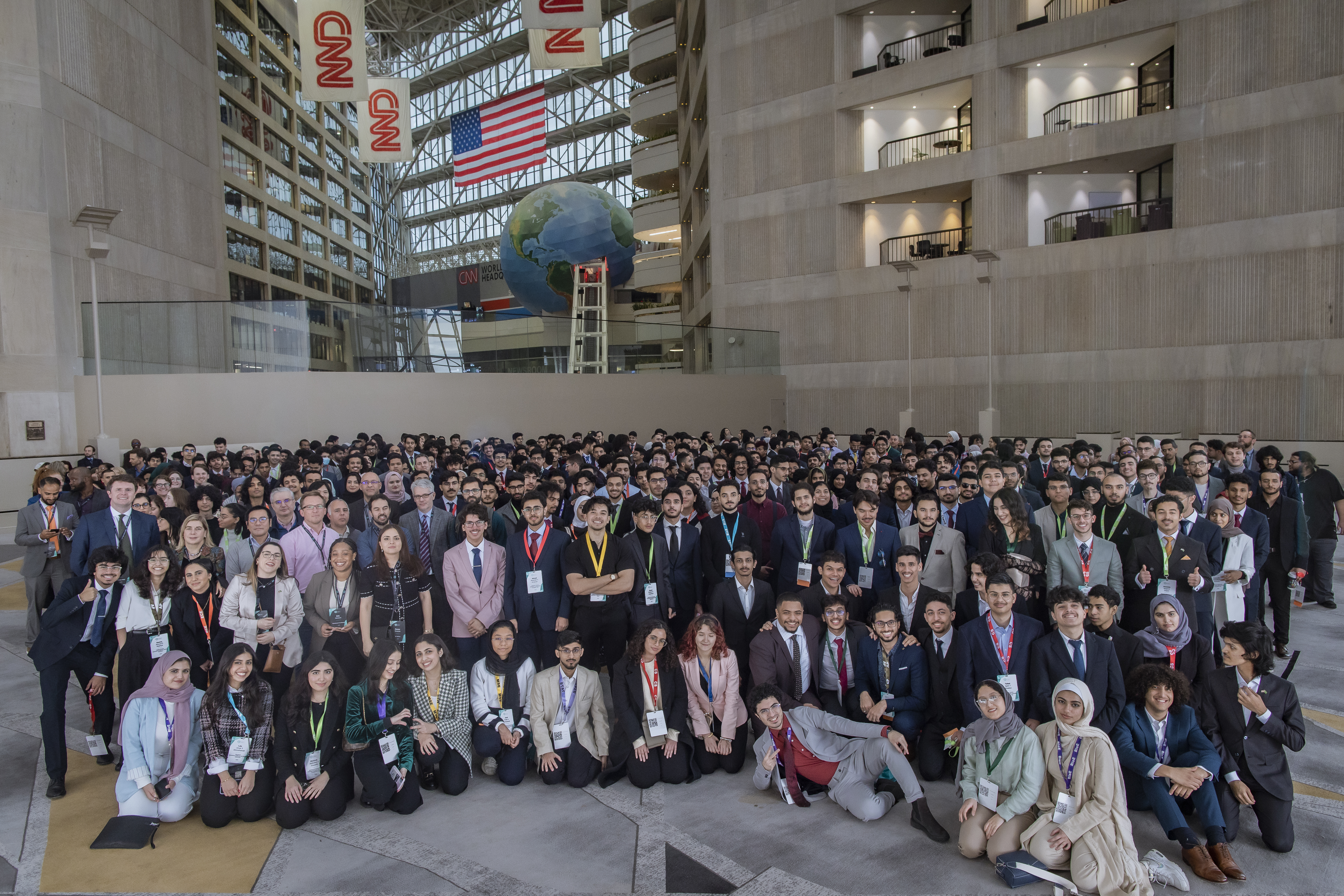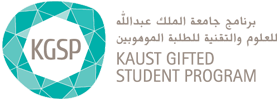KGSP Alumnus Makes Waves Onboard OceanXplorer
It looks like something from a James Bond movie.
Onboard you may find a helicopter, a speedboat, submarines, zodiacs, jet skis, laboratories, and remote operated vehicles (ROVs) capable of diving thousands of meters below the ocean surface. As it travels from sea to sea, it resembles something between a luxury yacht and a floating research facility.
This state-of-the-art research vessel goes by the name of OceanXplorer and has been traveling around Africa since January 2025 on its way to Nice, France in June in time for the UN Ocean Conference. Those who’ve boarded OceanXplorer represent an extraordinary community: the world’s brightest scientists, expert divers, NASA researchers, presidents and world leaders, award-winning film makers, and most notably, alumni of the KGSP.
KAUST and KGSP have a history onboard OceanXplorer. Some time ago, KGSP alumnus Murtada Al Malallah boarded the research vessel as it conducted research in warm waters of the Red Sea and eastern Africa. And now, this spring, KGSP alumnus and Marine Science PhD student Ahmed Alsaggaf was selected to join its “Around Africa Expedition” in the eastern Atlantic Ocean.
This four-month expedition was spearheaded by OceanX (a nonprofit that accesses “the most unreachable parts of the ocean aboard the most advanced exploration and media vessel ever built”) in collaboration with OceanQuest (a Saudi non-profit foundation aimed at deep-sea exploration). Its mission is to explore Africa’s coastline, conduct high-resolution mapping of uncharted ecosystems and seamounts, and promote marine science through its communication efforts.
As part of the expedition, OceanX launched a program for early-career ocean professionals, or ECOPs. The idea was to select 10 to 15 students or young professionals, bring them on board, and provide them with a strong foundation in marine science principles.
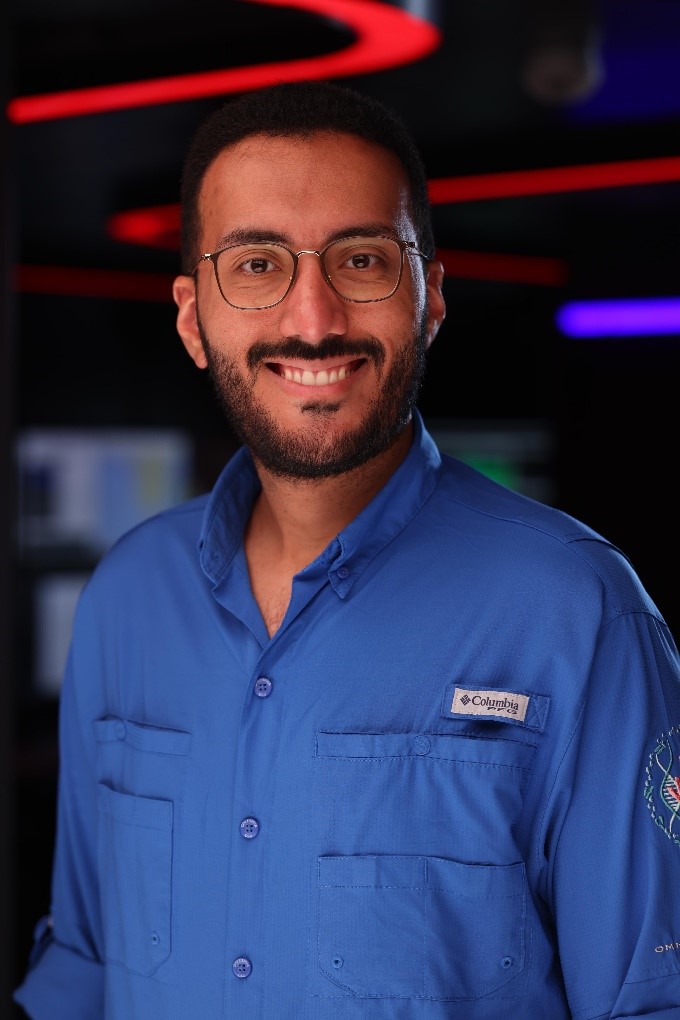
“My involvement with OceanQuest and OceanX came through my Principal Investigator (PI), Dr. Raquel Peixoto,” says Ahmed. “She’s a great person and extremely passionate about her research.” Dr. Peixoto is an Associate Professor of Marine Science at KAUST. She is the PI for KAUST’s Marine Microbiomes Lab and the President of the International Society for Microbial Ecology (ISME).
At KAUST, Ahmed has been collaborating with researchers from around the world, an experience that equipped him with the ability to navigate diverse perspectives and methodologies aboard OceanXplorer. There, he worked alongside young scientists from Tunisia and Morocco to Zanzibar, Tanzania, Uganda, Namibia, just to name a few.
Aboard OceanXplorer, Ahmed and the ECOPs worked with instruments known as CTDs, tools that measure seawater salinity, temperature, pressure, and facilitate water sampling. His work also focused on the carbon sequestering of seawater, which provides insights into ocean acidification – a key data point for marine scientists as they study the effects climate change. Ahmed also collected biological samples, such as bacteria and other living organisms, and sequencing them using Oxford Nanopore Technologies, a chip that’s about the size of a finger.
“We collected samples and managed to sequence their DNA onboard, which was mind-blowing,” says Ahmed. Commonly, labs would need to send samples to companies abroad for sequencing, and the process would take much longer, sometimes months. However, Onboard the OceanXplorer, “we were able to do it in just a week.”
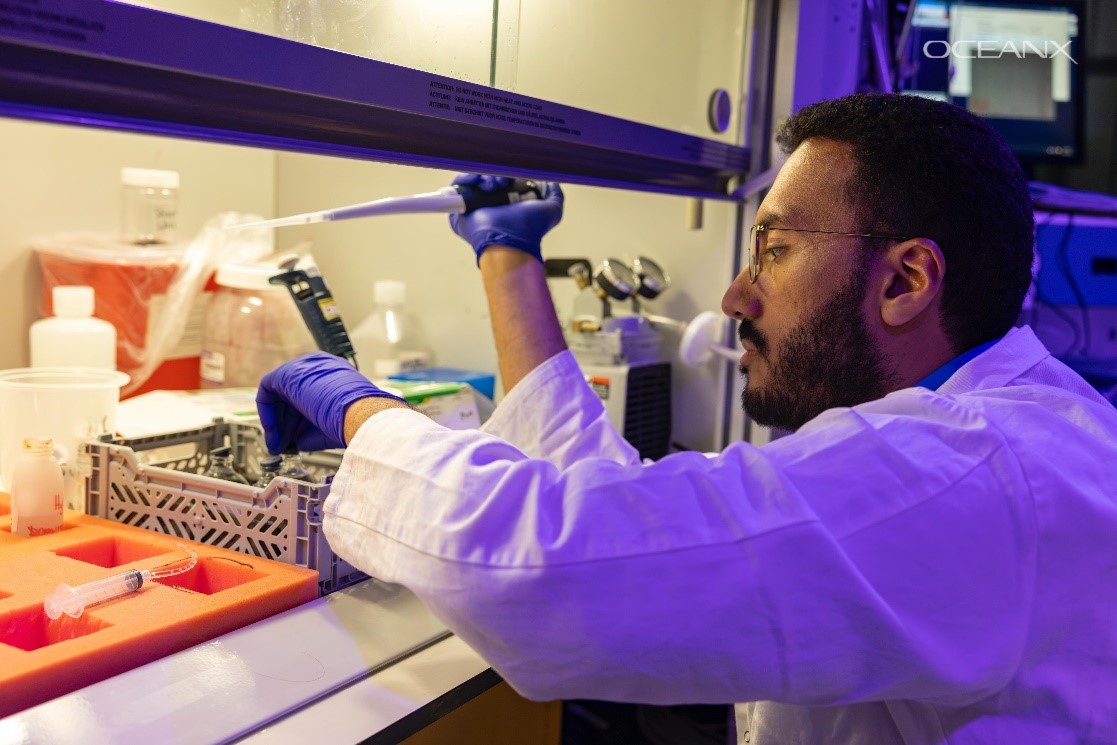
This is just one of the many tools OceanX has in its toolbox. The onboard helicopter allowed Ahmed to fly along the ocean’s surface and survey megafauna like whales and dolphins from above. The vessel is also equipped with a sonar array, including a multibeam echo sounder that can measure underwater topography and a sub-bottom profiler that detects sediment layers beneath the seabed. They have a “Metal Shark” patrol, a smaller, sleek vessel that is equipped with a sonar system and dive platform that can operate independently to explore tight areas away from the main ship.
“It was incredible,” reflects Ahmed. “And the amazing thing is that they would deploy everything at the same time. All these teams had to work in harmony, staying in contact with each other, working together seamlessly for up to eight hours per day. The sheer number of activities we packed into a single month was just incredible.”
OceanX welcomes a wide range of people in its crew, many of whom come from outside of the marine science community. According to Ahmed, “most of the people that were working with ROVs came from oil and gas – the ‘enemy’ of conservationists – and now they're saying they like this work much better because they’re exploring more, doing surveys, and helping the environment and the world. Even OceanXplorer itself was a former oil survey ship that was acquired and remodeled into a research vessel.”
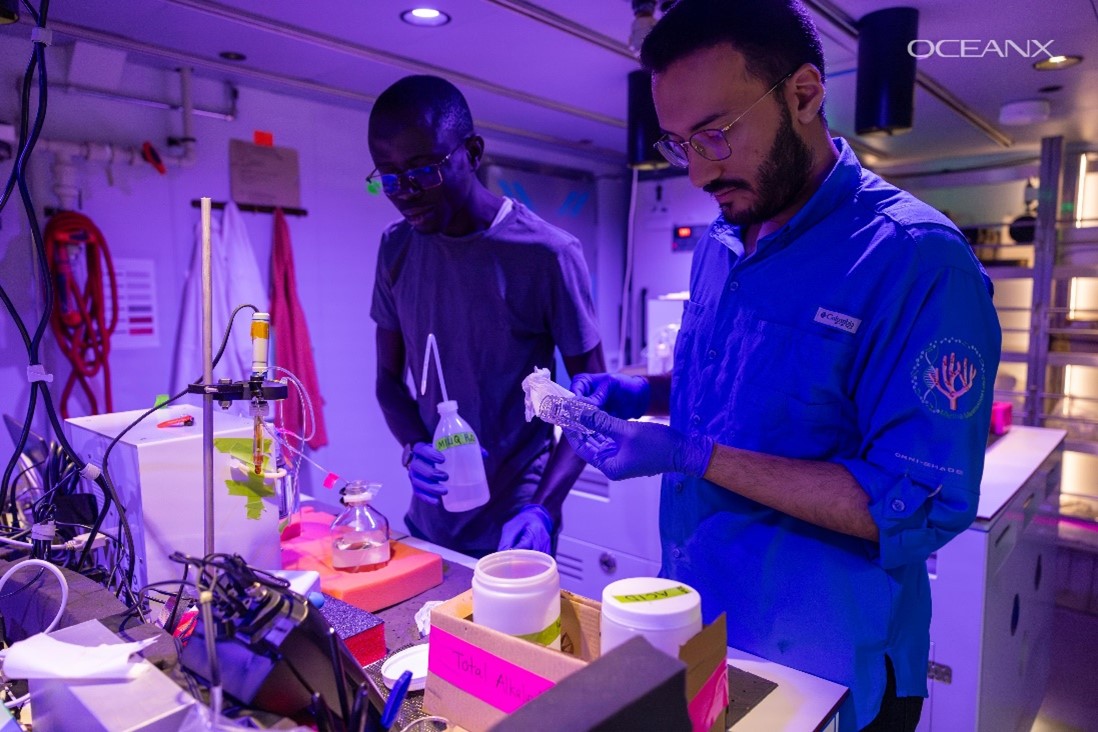
NASA was also onboard working alongside the OceanX crew. They were focused on data from a satellite called PACE, which takes images of the ocean and measures chlorophyll levels. On the OceanXplorer, NASA conducts a process known as “ground truthing” which involves validating the chlorophyll measurements taken by the PACE.
“That's what OceanX does really beautifully,” says Ahmed. “It utilizes all these different areas of expertise in the context of science, environmental preservation, and environmental enhancement.”
One of the most impactful aspects of OceanX is its science communication arm. OceanXplorer is equipped with a production studio that allows onboard production of digital content in real time. It has produced high-profile media such as the National Geographic series, "OceanXplorers" narrated by director James Cameron of Titanic and Avatar fame.
“This focus on science communication is a core part of OceanX’s mission,” says Ahmed, “and they excel at this by communicating research not only to individuals, but also to policymakers.”
Ahmed recounts a story from his time on OceanXplorer that perfectly highlighted this larger outreach mission. “During the expedition, we visited Cabo Verde, a small island nation with a population of about half a million. While there, we conducted an expedition with their scientists, and we even had a visit from their president that was televised. He said that this expedition and everything he experienced completely changed his perspective on the sea and marine ecosystems. This was a big win for environmental and marine science in general. That experience left me feeling hopeful. I believe we have a real chance to save much of the biodiversity we have, especially through effective communication and exposure like this.”
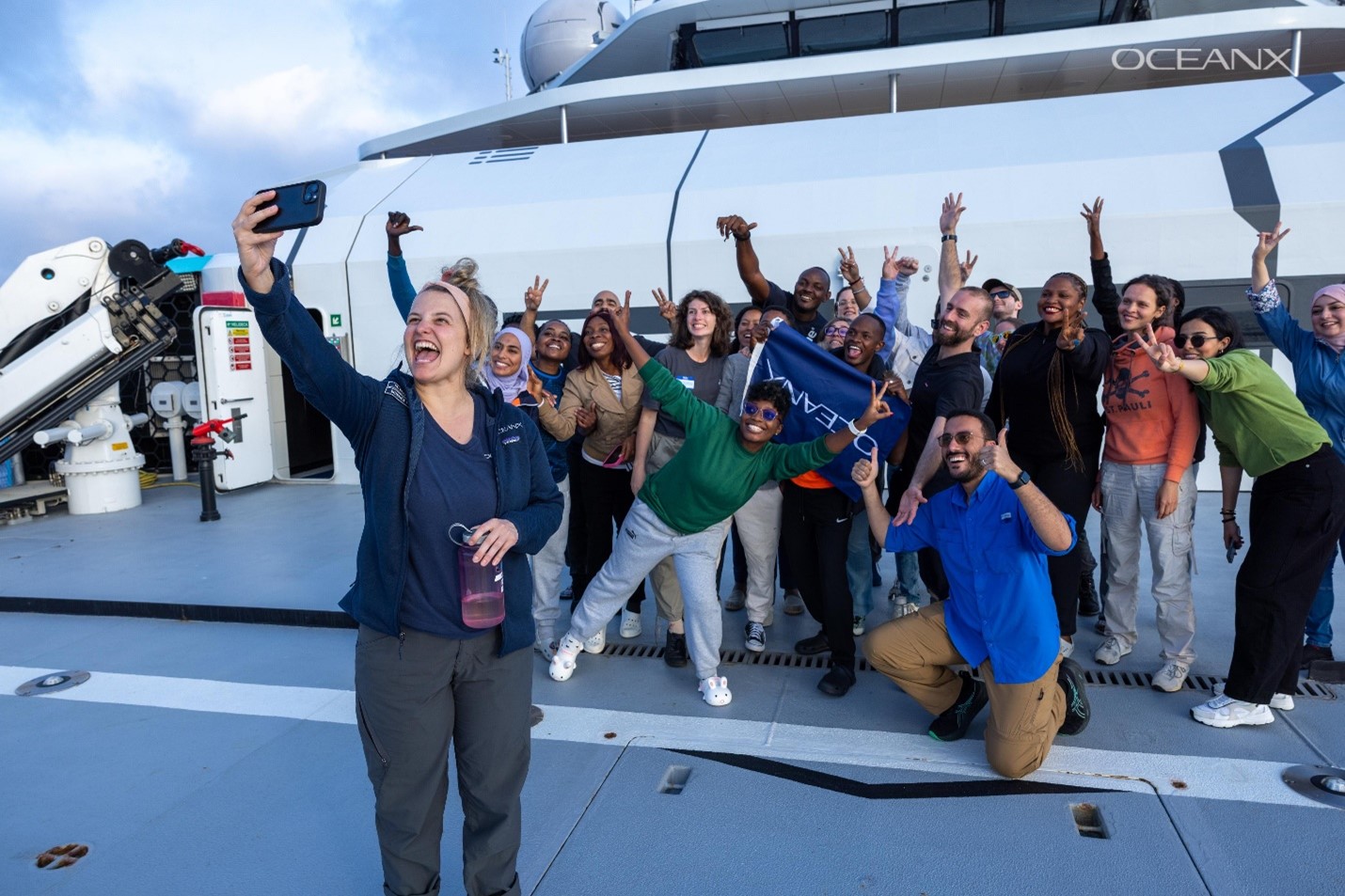
Ahmed’s journey in marine science has been shaped not only by his time aboard OceanXplorer but also by his experience at KAUST. “Being at KAUST has been incredibly beneficial for me. It’s opened so many doors.” he explains. “One of the greatest perks of being at KAUST is the chance to work with high-profile companies and organizations like OceanQuest and OceanX. KAUST is undoubtedly one of the best environments for this kind of work.”
Indeed, KAUST has played a significant role in shaping Saudi Arabia’s future in marine science. OceanQuest, a KAUST-incubated organization with deep ties to Vision 2030, is one of the key players in this transformation. Other major initiatives, like Red Sea Global and NEOM, are driving marine research and conservation efforts. Beyond industrial interests, governmental agencies such as SHAMS which focuses on coral health and sea turtles and is led by a KAUST alumnus, and the National Center for Wildlife (NCW) reflect the Kingdom’s growing demand for expertise in Marine Sciences.
“Marine Science has now come under the spotlight, becoming one of the more sought-after degrees for Saudis,” says Ahmed after reflecting on his expedition aboard OceanXplorer, replete with helicopter rides and plunges into the darkest corners of the ocean. “And the exciting thing is – it’s fun. It’s truly an amazing time to be a marine scientist.”
STUDENT PROFILE
KGSP students represent the Kingdom of Saudi Arabia’s future scientists, engineers, entrepreneurs, and thought-leaders. As both individuals and as a community, they reflect the KAUST mission of driving scientific discovery through excellence in education and cutting-edge research, and share a commitment to fostering innovation, economic development, and social prosperity throughout the Kingdom and the world.
ADMISSIONS REQUIREMENTS
Selection to the KGSP is extremely competitive, and currently by invitation only. Successful applicants are Saudi Arabian students in their final year of high school who demonstrate impressive academic credentials within STEM fields, meaningful extra-curricular achievements, and who share the KAUST ethos of continuous discovery. Learn more here.
KGSP ADMINISTRATION
The KGSP is administered by KAUST Academy under the leadership of Dr. Sultan Al-Barakati. KAUST Academy is mandated by KAUST to support the acceleration of Saudi Arabia's knowledge-based economy by providing world class training programs in emerging technologies aligned with Vision 2030. KAUST Academy crafts these unique learning interventions by exporting the intellectual DNA acquired by KAUST for the benefit of the entire Kingdom.

—King Abdullah bin Abdulaziz al Saud
1924 – 2015
